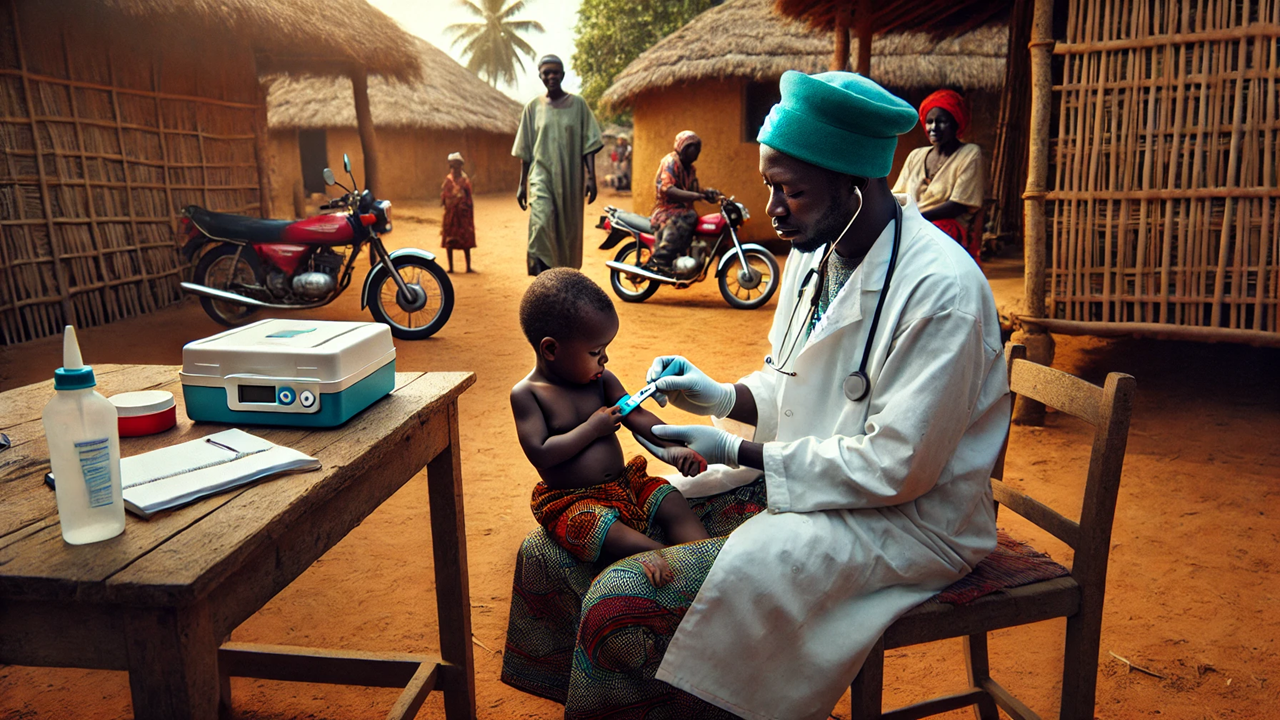Malaria Progress Stalls Despite Averting 12.7 Million Deaths Since 2000, WHO Calls for Urgent Action
The 2023 World Malaria Report highlights a concerning rise in malaria cases, reaching an estimated 263 million, 11 million more than in 2022.

The World Health Organization (WHO) has revealed that global efforts have averted 2.2 billion cases of malaria and saved 12.7 million lives since 2000. However, malaria remains a pressing global health threat, with an alarming resurgence in 2023, particularly in the WHO African Region, which accounts for 95% of malaria-related deaths.
The 2023 World Malaria Report highlights a concerning rise in malaria cases, reaching an estimated 263 million, 11 million more than in 2022. The disease claimed 597,000 lives worldwide, with children under five and pregnant women bearing the brunt of the impact.
WHO’s Call for Action
“No one should die of malaria,” stated Dr. Tedros Adhanom Ghebreyesus, WHO Director-General. “We now have an expanded package of lifesaving tools, but high-burden countries need greater investments and coordinated actions to combat the threat.”
The report outlines an urgent need to scale up funding, improve access to effective tools, and strengthen health systems to address malaria’s root causes.
Progress Achieved, But Challenges Persist
Despite the challenges, progress is evident:
Certified Malaria-Free Nations: As of November 2024, 44 countries and one territory have achieved malaria-free certification, and 25 endemic countries report fewer than 10 cases annually.
African Region Achievements: The region has reduced its malaria mortality rate by 16% since 2015, yet it remains more than double the target level set by the Global Technical Strategy for Malaria 2016-2030.
In 2024, health ministers from 11 African nations with two-thirds of the global malaria burden committed to enhancing health systems, coordinating efforts, and addressing root causes like weak infrastructure and inequities.
Renewed Hope Through New Tools
Innovations such as malaria vaccines and new-generation insecticide-treated nets provide renewed hope:
Malaria Vaccines: Seventeen countries have integrated WHO-approved malaria vaccines into routine childhood immunization, promising to save thousands of young lives annually.
Improved Nets: In 2023, 78% of the 195 million nets delivered to sub-Saharan Africa were new-generation nets, offering enhanced protection against insecticide-resistant mosquitoes.
Funding Shortfalls and Barriers
WHO warns that funding shortfalls are derailing progress. In 2023, global malaria funding stood at $4 billion, just under half the $8.3 billion target. This funding gap has left millions without access to essential tools such as insecticide-treated nets and antimalarial medications.
Fragile health systems, inadequate surveillance, and rising biological threats, including drug and insecticide resistance, further compound the challenges. Conflicts, climate change, and displacement also exacerbate health inequities, particularly for vulnerable groups such as children, pregnant women, Indigenous Peoples, and those in remote areas.
Equity-Focused Strategies Needed
To close the care gap, WHO urges nations to prioritize equity-focused responses. This includes strengthening primary healthcare systems, addressing gender inequities, and investing in robust data systems that can monitor disparities.
Dr. Ghebreyesus emphasized that equity, gender equality, and human rights must underpin innovations and interventions. “The people most impacted by malaria must be actively involved in designing and evaluating the tools and strategies used to combat this disease,” he said.
The Road Ahead
The WHO’s call to action underscores that malaria elimination is achievable, but only with sustained political commitment, adequate funding, and innovative, inclusive approaches. Bridging the gaps in care and ensuring equitable access to lifesaving tools can accelerate progress toward a malaria-free world.
- READ MORE ON:
- Malaria
- World Health Organization










